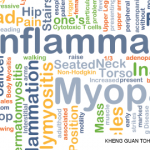Reuters)—Severe COVID-19 may trick the immune system into producing autoantibodies that have the potential to eventually attack healthy tissue and cause inflammatory diseases, researchers warned in a paper published in Nature Communications.1
They found autoantibodies in blood samples from roughly 50% of the 147 COVID-19 patients they studied, but in fewer than 15% of 41 healthy volunteers.
For 48 COVID-19 patients, the researchers had blood samples taken over different days, including the day of hospital admission, allowing them to track the development of the autoantibodies. “Within a week … about 20% of these patients had developed new antibodies to their own tissues that weren’t there the day they were admitted,” study leader Paul Utz, MD, of Stanford University said in a news release.
He urged people to get vaccinated. “You can’t know in advance that when you get COVID-19 it will be a mild case,” he said. “If you do get a bad case, you could be setting yourself up for a lifetime of trouble because the virus may trip off autoimmunity.”
“We haven’t studied any patients long enough to know whether these autoantibodies are still there a year or two later,” he added, but noted that developing an autoimmune disease was a possibility.
Reference
- Chang SE, Feng A, Meng W, et al. New-onset IgG autoantibodies in hospitalized patients with COVID-19. Nat Commun. 2021 Sep 14;12(1):5417.



